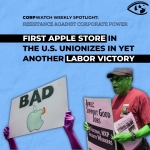MEXICO: Teoti-Wal-Mart
Each
winter solstice, tens of thousands of revivalist Indians, New Age
acolytes, and just plain tourists don cameras, feathered head dresses,
or simple white cottons and tramp to the top of the Pyramid of the Sun
in San Juan Teotihuacan to soak up the rays and revitalize their bodies
and souls for the coming year.
Teotihuacan
flourished for nearly a millennium between the second century BC and
700 AD. In the year 500, half a million people lived in the city, which
covered an expanse of eight square miles, larger even than Rome. Having
harnessed underground streams, the rulers of Teotihuacan created
Mexico's first corn culture. Queztalcoatl, the plumed serpent, a deity
ubiquitous in ancient Mesoamerica, ruled over Teotihuacan, and his
priests maintained the balance of the agricultural seasons and upheld
the sun in the sky through human sacrifice.
As
I climbed the 247 steep stone steps divided into four narrow tiers to
the pyramid's summit, many of my fellow pilgrims expressed their
umbrage at the new Wal-Mart, in plain sight down below, just 2,000
meters away.
"It is like an invasion, a new conquest," opined Rafael, a young computer technician from Cordoba, Veracruz.
"Falta de respeto" (a lack of respect), a middle-aged woman missing her two front teeth spat. "This is Mexico, you know."
"What
a horror! They insult the Gods! Quezalcoatl must be furious!" said
Mexico City grade school teacher Xenia Marquez, extending her arms
towards the weak December sun at the very apex of the Pyramid of the
Sun. Her tirade was interrupted by the tingling of her cellphone.
The
saga of the resistance to the Teotihuacan Wal-Mart is a picaresque
footnote in the battle against the global leviathan. "Wal-Mart has
profaned the City of the Gods, and there are no deities in Mesoamerica
that can protect it," darkly warned Miguel Limon-Portillo, the
celebrated translator of Aztec poetry. Whereas in the U.S., such
disputes are apt to be settled before permit appeals and zoning boards,
the Teotihuacan Wal-Mart touched a raw national nerve, and so this war
was fought à la Mexicana.
Having
jumped the gun on NAFTA by buying into the 122-store Bodega Aurrerá
chain here in 1992 and taking it over five years later, Wal-Mart now
owns 687 superstores in seventy-one Mexican cities under the marquee
logos of Wal-Mart, Bodega Aurrerá, Superama, and Sam's Club--plus
fifty-two Suburbias (a more upscale department store chain) and 235
Vips restaurants. Total Wal-Mart sales of $10.8 billion in 2003 dwarfed
the $8 billion taken in by the next three retailers together. And
Wal-Mart, the largest U.S. employer, is also Mexico's biggest job
generator, accounting for 101,000.
As
in the U.S., the bottom line is gospel for Wal-Mart in Mexico, and no
unions or other troublemakers are tolerated on the premises. Non-union
Mexican Wal-Mart "associates" earn an average of 13 pesos an hour
(about $1.20) as compared to $9 for their nonunion U.S. counterparts.
"It
is not good for our sovereignty that all our clothes and our food come
from another country," asserts Vicente Yanez, director of the National
Association of Self-Service Stores. (More than 2,000 McDonald's also
stain the Mexican landscape.)
A
full decade after NAFTA kicked in, the commercial physiognomy of Mexico
is often indistinguishable from that of its neighbor to the north.
Not many months ago, polleros (people
smugglers) in Tapachula, Chiapas, on Mexico's southern border, wheedled
$5,000 each from six Guatemalans and two other undocumented workers
whom they promised to deposit safely in the United States.
Moving through Mexico stealthily in an old bus with its curtains drawn and slipping immigration officials the obligatory mordida
(little bite, or bribe) to ease through the checkpoints, the smugglers
arrived in Chihuahua City, 100 miles south of the U.S. border, drove
out to an upscale suburb, and dropped their load off in front of an
enormous Wal-Mart, informing the clueless clients they had arrived on
"the Other Side." The Wal-Mart shared the gleaming mall with a Wendy's,
a KFC, even an Applebee's, and the ten-plex "Hollywood" Cinema.
"It looked just like how it looked on television" a rueful indocumentado told Froilan Meza of the local Chihuahua Herald.
The Civic Front to Defend the Teotihuacan Valley (Frente Civica)
first got wind of Wal-Mart's plans very late in the game after concrete
trucks started pouring a foundation less than two kilometers from the
pyramids. Activists immediately suspected a deal had been cut between
the conglomerate, the municipal government, and the National Institute
of Anthropology and History (INAH), without whose permission the
project could not go forward.
On
October 1, 2004, Lorenzo Trujillo, a middle-aged teacher, the
self-styled "spiritual guide" Emma Ortega, and Emmanuel D'Herrera, a
poet and professor, set up camp at the Wal-Mart site, rolled out their petates
(straw mats), lit copal incense to the guardian figure of Coatlicue, a
sort of Aztec Shiva, and, in classic lost-cause Mexican struggle
posture, declared themselves on hunger strike. Their sacrifice made an
impact in a nation that bridles at dubious NAFTA encroachments and has
been galvanized by the plight of its Indian cultures after ten years of
Zapatista rebellion.
Mexico
State Governor Arturo Montiel, a dark horse presidential hopeful of the
Institutional Revolutionary Party, which ran Mexico for seven decades
and would like nothing better than to take back power in 2006, was a
big booster of the new Wal-Mart store. He boasted it would bring 3,000
new jobs to this run-down region. But local street sellers and market
vendors figured their livelihoods were jeopardized by super-store
competition and joined the fray. Street fights ensued between those who
opposed the project and those who did not want to bus twenty miles away
to other towns to do their shopping. When the Frente Civica
camp was attacked by angry construction workers, the three hunger
strikers moved to the ruins. A second strike began on the sidewalk
outside the INAH's Mexico City offices.
By
now, lots of fingers were being pointed at the INAH for having declared
the Wal-Mart site of "no archeological value." One fired construction
worker, Martin Hernandez, told the national left daily La Jornada
that he had seen broken pieces of pottery and other items being hauled
from the construction site and was ordered to keep quiet about the
destruction.
Soon
Rigoberta Menchú and Subcomandante Marcos were commenting on the
desecration. The Teotihuacan Wal-Mart was a ready-made flashpoint for
indigenous organizations such as the National Association for
Indigenous Autonomy, which pointedly asked if the Catholic Church would
allow a megastore to be thrown up at the door to the Vatican.
Francisco
Toledo, Mexico's most luminous painter, who had single-handedly kept a
McDonald's out of Oaxaca city's colonial plaza (which like Teotihuacan
is a UNESCO World Heritage Site), drew pictures of monkeys pushing
shopping carts beneath the pyramids of "Teotihualmart," as social
critic Carlos Monsivais tagged it. Union leaders came to express their
support of the hunger strikers and to remind the press of Wal-Mart's
anti-union bias. Anarcho-punks, anthropologists, and comedians
expressed their outrage, and cabaret star Jesusa Rodriguez told of the
"Hualmartas, a tribe from the north."
As
the uproar mounted, Wal-Mart worked around the clock to get the new
store up and running before October was out. And as the deadline
approached, tempers flared. On October 24, militant farmers from nearby
San Salvador Atenco, who had fought off a proposed international
airport with their machetes three years previous, clashed with police
just outside the ruins. A police car and three motorcycles were torched.
When
on October 30 Wal-Mart was finally ready to throw open its doors, there
were seventy customers in line before 9 a.m. A sound truck had been
circulating through the small city for days advertising free gifts and
big bargains. But just before opening time, a team of INAH workers
appeared on the scene and demanded entrance in order to drill for
last-minute samples. Two meter-deep holes were perforated between cash
registers six and seven as store stockers stopped to gawk. The samples
yielded only sand and fragments of twentieth century brick, and
Wal-Mart received the INAH's blessings to open for business.
But
the perforations had left a gaping chasm in the megastore's floor, and
Wal-Mart public relations officer Claudia Algorri decided the
inauguration would be postponed until after the long Dia de los Muertos weekend, Mexico's traditional celebration of its dead.
Over the weekend, the Frente Civica built altars to their ancestors and prayed that the gods of Teotihuacan were tuned in.
When
customers once again flocked to the megastore the following Tuesday
morning, 250 riot cops were on hand to greet them. The first scuffling
occurred after the mob tried to take the doors, and Wal-Mart officials
had to calm the public with free Cokes, French fries, and "little
cakes," according to La Jornada. Then the link to the
satellite, which would connect the Teotihuacan cash registers with
Wal-Mart headquarters in Bentonville, Arkansas, went down--the gods
must have been listening. For six hours, the crowd hung around the
parking lot under the blazing sun. A family quarrel broke out and noses
were bloodied, the Jornada reporter noted. Finally, at about
3:30, customers were allowed to grab a shopping cart, and the consumer
frenzy was consummated. But sales were not brisk. Many people had come
just to gander at the marvels of modern merchandising contained within
this temple of plastic.
That night, a band of toughs dismantled the Frente Civica encampment by the ruins. D'Herrera, then in the fourth week of his hunger strike, was rousted from his petate, and three students were slashed by a razor-toting thug. The Teotihuacan Wal-Mart was officially in business.
By
December, the Teotihuacan Wal-Mart was booming. Although "Nueva
Wal-Mart" (the corporation's Mexican handle) has posted no outside
store sign to avoid controversy, the interior is unmistakably a
prototypical Sam Walton-style emporium stocked to the roof beams with
mostly Chinese-made items.
Given
the season, the toy aisles were packed with parents shopping. Of six
customers questioned, all fervently concurred that Wal-Mart prices were
the lowest in town. Princess Barbie was on sale for 288 pesos (about
$20), He-Man action figures for 162. But a giant yellow Hummer toy
weighed in close to 4,000 pesos. A miniature Wal-Mart megastore marked
down to 988 pesos was drawing oohs and ahs. Elsewhere in the aisles,
Black & Decker irons were going quickly at 97 pesos, and U.S. grown
tomatoes and apples were holding their own against local produce.
Miguel
Angel Nieves, a young custodian whose father worked rebuilding the
Pyramid of the Moon in the 1960s, exalted the prices and the products.
"Before Wal-Mart opened, we would shop in the street or in the central
market, which is owned by one man," he said. "The prices were
high--and, well, it wasn't very clean."
Out
in the parking lot, Victor Acevedo, a local anthropologist who affects
handmade Indian accessories, was sheepishly loading merchandise into
his battered Volkswagen bug. "I don't like the idea of Wal-Mart being
so close to the pyramids," he said, "but where else am I going to
shop?"
Mexico
is a four-millennium-old civilization with a culture as obdurate as
granite and obsidian. When the Europeans came, they pulled down most of
the Aztec temples. But the majestic pyramids of Teotihuacan remained.
And so they will remain long after all the Wal-Marts in Mexico crumble
into dust.
- 188 Consumerism & Commercialism


